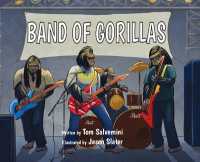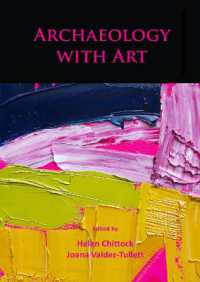Full Description
This ground-breaking collection of essays, which arises from a unique collaboration between leading scholars based on either side of the former Iron Curtain, is the first attempt to appraise the current state of research on the development of Russian art music since the 1917 Revolution. Part I provides a comprehensive critical overview of recent research both in Russia itself and outside it, outlining the principal changes in approach and emphasis. The remaining essays engage with topics of key importance, including: the envisionings of music's place in Soviet and post-Soviet cultural life; the effects of state controls on musical creativity and performance; musical institutions; the Russian musical diaspora; and the transition to the post-Soviet period.
The contributions vividly illustrate the transformation of scholarship in the field since glasnost. In the USSR, scholarship had been seriously hindered by censorship, while in the West, Soviet music and musical life tended to be assessed from entrenched aesthetic and ideological standpoints engendered by the Cold War. The dramatically changed climate of the post-Soviet period has made possible a more objective and informed discussion of many issues, and has led scholars to question the validity of 'top-down' models of the interaction between musicians and the state that had previously been predominant.
The book will be not only be a valuable resource for university courses on Russian music at undergraduate and postgraduate level, but essential reading for all those interested in Soviet and post-Soviet culture.
Contents
Introduction
Part I: Russian Music History and Historiography Today
Russian Musicological Scholarship of the Last Two Decades: Achievements and Lacunae
Soviet Music Studies outside Russia: glasnost and after
The Adventures of Soviet Music in the West: Historical Highlights
Soviet Music in Post-Soviet Musicology: First Twenty Years and Beyond
Part II: Reappraising the Soviet Past
The Phenomenon of 'Translation' in Russian Musical Culture of the 1920s and Early 1930s: The Quest for a Soviet Musical Identity
From Enlightened to Sublime: Musical Life under Stalin, 1930-1948
The Stalinist Opera Project
Composers in the GULAG: A Preliminary Survey
Part III: Soviet and post-Soviet musicology
'Foreign' Versus 'Russian' in Soviet and Post-Soviet Musicology and Music Education
Glinka in Soviet and Post-Soviet Historiography: Myths, Realities, and Ideologies
Part IV: The Newest Shostakovich
Portrait of the Artist as a Young Man: The Shostakovich-Bogdanov-Berezovsky Correspondence
Shostakovich's 'Lenin' Project: The 'Pre-Twelfth' Symphony - Reality or Myth?
Part V: Russian Music Abroad
Is There a "Russia Abroad" in Music?
Defining Diaspora through Culture: Russian Émigré Composers in a Globalising World
Part VI: 1991 and after
Musical Uproar in Moscow (II)
The Idea of the 1920s in Russian Music Today
Paradigms of Contemporary Music in Twenty-First-Century Russia








